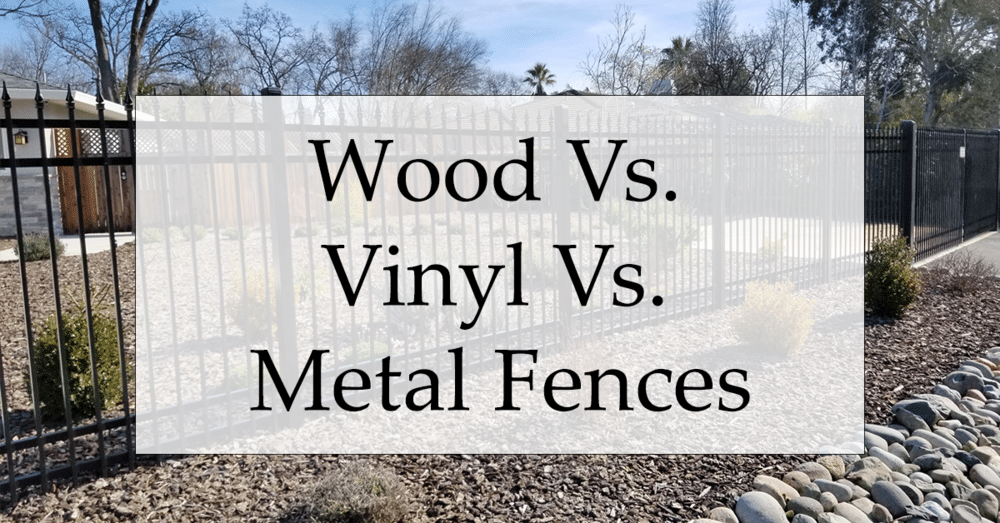
When you’re looking for a new fence for your home, you’ll need to decide what material to use. Many people find it to be a tough decision to make. Your new fence can be made of vinyl, wood, or metal…but which one is the best? How do you decide between vinyl vs wood fence? What about metal and wood fences?
Each material has its own pros and cons, but only one will really work for your home. To answer any question you may have and hopefully help you make a decision on what is best, we are going to go through the pros and cons of vinyl, wood, and metal fences.
Pros:
Cons:
Pros:
Cons:
Pros:
Cons:
Ultimately, the success of your fence project hinges on choosing the right fence material that aligns with your specific needs.
For those seeking a budget-friendly, straightforward, and robust solution for their home, vinyl emerges as the top recommendation for your fence installation. If your vision includes a classic white picket fence or a distinctive dog ear design that adds character to your property, then wood is an excellent choice. Meanwhile, for enhanced curb appeal, robustness, and customizable options that reflect your personal style, opting for a metal fence is ideal.
I hope this post has provided you with valuable insights and a clearer understanding of the key fence materials available for your project. Should you have any inquiries about our wrought iron fences, gates, railings, or stairs, please don’t hesitate to reach out to us.